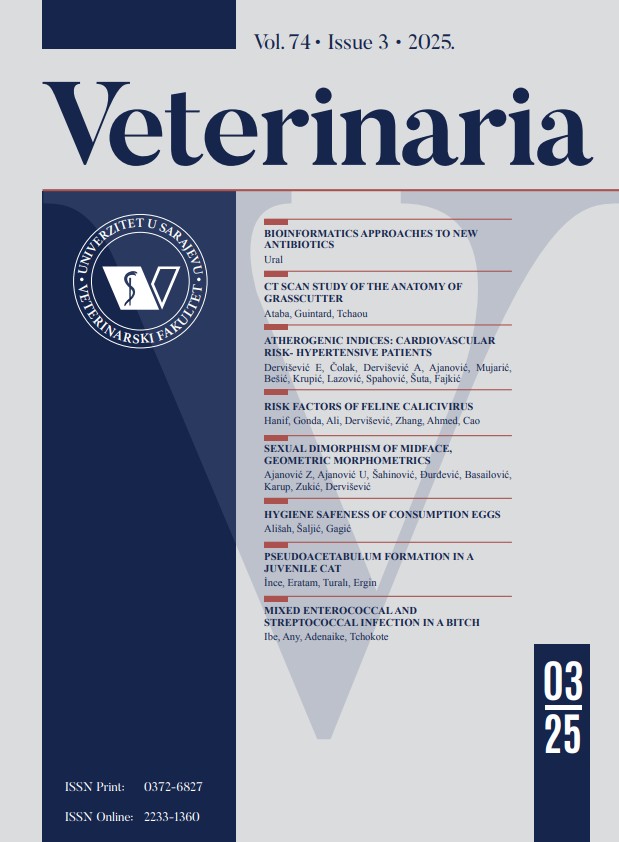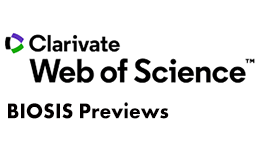Evaluation and comparison of diagnostic screening tests for detection of residues of beta-lactam antibiotics in raw cow's milk
Keywords:
residues, beta-lactams, screening testAbstract
Based on the questionnaire that is conducted among the end-users in Bosnia and Herzegovina, it has been proved that SNAP Beta-lactam, ROSA MRL betalactam and BRT MRL are the most commonly used screening tests for the detection of beta-lactam antibiotics in raw cow’s milk. With regard to maximum residue limit of 4 ppb for penicillin in milk, after the testing of samples with known concentration of penicillin of 0, 2, 3, 4, 5 and 6 ppb, diagnostic specificity rate of 52% for SNAP, 24% for ROSA MRL and 20% for BRT MRL test has been determined. Testing of individual samples obtained from the cows not treated with an antibiotic indicated no false positive readings for SNAP and ROSA MRL tests, whereas BRT MRL test showed 19 (63,33%) false positive readings. By testing the samples of intramammary penicillin-treated cows obtained within the withdrawal period, no false negative results were recorded. The first and the second day after the withdrawal period SNAP test indicated 2 (20%), and ROSA MRL test 4 (40%) false positive results. BRT MRL test showed 8 (80%) false positive readings on the first and the second day, but 6 (60%) on the third day after the withdrawal period. By testing the samples of intramuscularly penicillin-treated cows during the withdrawal period, SNAP test recorded 7 (23,33%) and ROSA MRL 5 (16,66%) false negative results, whereas BRT MRL test did not record false negative readings.
Downloads
Published
How to Cite
Issue
Section
License
Copyright (c) 2020 Muris Begagić

This work is licensed under a Creative Commons Attribution 4.0 International License.







